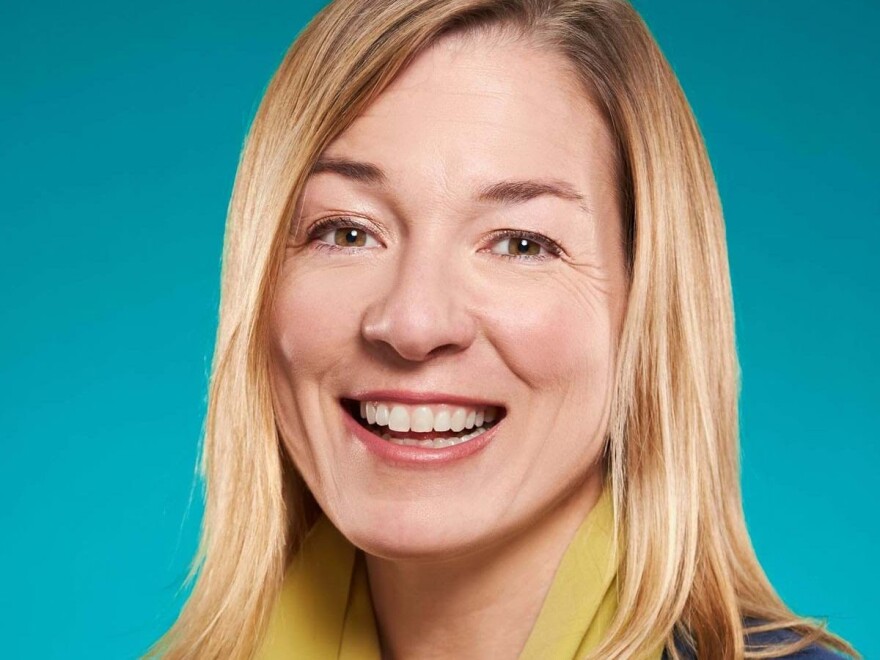This story appeared first in WFAE reporter David Boraks' weekly newsletter. Subscribe today to get Climate News straight to your email inbox each week.
I was in Boise, Idaho, last week for the annual conference of the Society of Environmental Journalists. I came back with a head crammed full of information, story ideas and insights — like how a city smaller than Charlotte or Raleigh, in a red state, is pushing to meet climate goals.
Boise's goals are similar to those of Charlotte and Raleigh. Boise wants government facilities to run on 100% clean electricity by 2030 and for all city operations to be carbon neutral by 2035. And it wants the whole city — not just the government — to use 100% clean electricity by 2035 and to be carbon neutral by 2050.
For comparison: Boise's population in the city limits is about 240,000, fewer than Raleigh (470,000) and Charlotte (875,000). Housing there is more expensive, and Boise has a higher rate of home ownership than either Raleigh or Charlotte.
Several factors give Boise a head start on clean energy. First, a natural geothermal system that dates from 1892 provides clean heating and cooling for more than 90 public and private buildings downtown. Also, hydroelectric dams are the largest source of electricity generation at the local utility, Idaho Power. And Boise voters overwhelmingly passed a $570 million bond in 2021 to pay for energy efficiency and other upgrades in the water system, which had been the city's largest source of carbon emissions.
The city's climate action plan, adopted two years ago, said Boise wanted to build on previous efforts. It has a citywide compost program as well as plentiful parks, trails and green space. And it's developing a water recycling program.
Boise Mayor Lauren McLean admits the goals are ambitious, but she defends the plan as essential to fighting climate change.

"We're all taking a risk," she said during a dinner with a small group of journalists last Friday night. "Why set a goal you know you can meet, rather than setting a stretch goal? And we can't do this without the community. That's why we've set our municipal goals first. We want to figure out how to do it, learn from that and then really move that into the community and partner with businesses and residents alike."
Sounds familiar. Charlotte's Strategic Energy Action Plan starts first with the city's buildings and fleet, then calls for communitywide efforts. But it's slow going. Charlotte’s Sustainability Chief Sarah Hazel acknowledged at Monday's council meeting that the city won't meet its 2030 goals.
But Hazel said Charlotte is making progress. After a panel discussion with other local sustainability leaders at this week's State Energy Conference in Raleigh, Hazel told me: "We need to do all the things that we can … and propose all the things we can to get as far as we can, and be able to say why it is if we can't get there that we can't get there."
The problem is not unique to Charlotte. Other North Carolina communities face similar challenges, as speakers said on that conference panel.
One other similarity between Charlotte and Boise: Idaho's Republican-controlled legislature sometimes passes laws that preempt or overturn local ordinances that legislators don't like. Recently, it blocked Boise's stricter energy efficiency code.
McLean doesn't like that. But she has her eyes on the goal and is already trying other tactics.
"I've already sat down with the natural gas company and said let's partner, because your shareholders are soon going to be asking you to do things differently. We'll do the same thing with builders ... you know, this is what we'd really like to see, these are our goals. How do we partner, how do we incentivize in our new modern zoning code or beyond to make sure that we get what residents need to protect their pocketbooks, without the law and the energy codes that we need?"
Back in Charlotte, Hazel is ready to listen to Boise's ideas and those from around North Carolina. When I talked to her about what I'd seen in Boise, she said: "We can learn things from smaller cities."
Flying to Boise
By the way, yes, I flew to Boise and back for the Society of Environmental Journalists convention — not helping my carbon footprint for this year.
I bought a carbon offset through American Airlines' nonprofit partner, Cool Effect, for $27.63. They say they'll spend it on projects such as planting trees in Alaska or replacing polluting cookstoves in Honduras.
I have a lot of questions about offsets. Some have come under scrutiny, as The Guardian reported in January. Do they really do what they say they'll do? It's a question we all need to ask — they're a major ingredient in the climate solution ahead.



